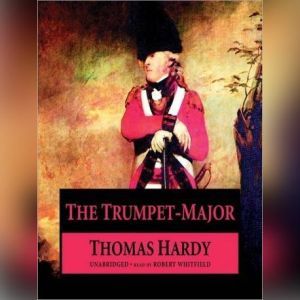
1 Rating(s)
List: $20.95
| Sale: $14.66
Club: $10.47
The Trumpet Major
Author: Thomas Hardy
Narrator: Simon Vance
Unabridged: 10 hr 44 min
Format: Digital Audiobook Download
Publisher: Blackstone Audio, Inc.
Published: 06/09/2009
Category: Fiction - Classics
Synopsis
Against the largerthanlife backdrop of England's conflict with Napoleon, young Anne Garland is courted by three suitors: the trumpetmajor John Loveday, his sailorbrother Bob, and Festus Derriman of the yeomanry cavalry. For Hardy, the loves and sorrows of ordinary characters are as much the material of history as any record of emperors and generals. The present tale is founded largely on testimony; the external incidents of the plot reproduce the recollections of elders known to Hardy in his childhood. If wholly transcribed, their recollections would have filled a volume thrice the length of The TrumpetMajor. Instead, Hardy offers a complex weave of historical fact and fiction, a genre of his own that explores the subversive effects of ordinary human desires on systematized versions of history.